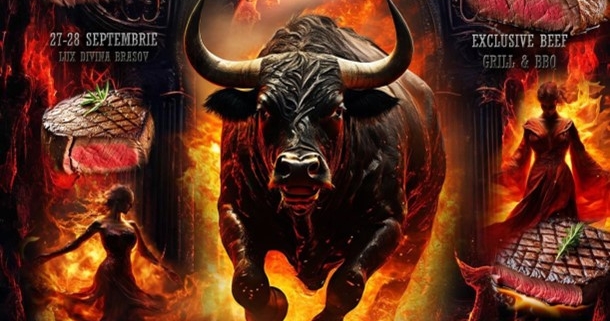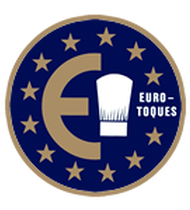
ARGUMENT
Transdisciplinary gastronomic studies aim to work for a sustainable gastronomy that incorporates the traditional principles of sustainable development.
Sustainable gastronomy involves the evolution from a social and economic perspective of the communities, maintaining the commitment to eco-nutrition and the optimal health of the community members. In this sense, sustainable gastronomy can be described as eco- gastronomy and interacts with all other components of system development. At a deeper level, sustainable gastronomy is about producing food that is sensitive to the environment, the preparation and eating of which are meant to nourish both mind and body. This assumption has a vast number of implications in both rural and metropolitan contexts. The most relevant ones are related to: survival of local food production, markets; viability of family cooking; transmitting culinary knowledge and educating children’s taste; the right to the satisfaction of pleasures and diversity; the impact of tourism in terms of gastronomic authenticity and community well-being.
Sustainable gastronomy also has the role of bridging the gap between the food elites and the vast part of the communities that still live in a state of “gastro-anomy”. It also means a greater appreciation of how food quality contributes to individual and societal well-being. There is growing evidence that good food quality leads to excellence and variety in food and drink promotes health. Access to quality food has become a political issue, to the same extent as that concerning the environment. Sustainable gastronomy in communities is about food security, which today still refers to pestilence, famine or conflict, but belongs, along with other things, to trade, food processing, human behavior, food choice, traditional components of gastronomy.
The modern consumer tries to be aware of the variety of elements on his “plate”. That “unidentified object” on the plate must tell the story of its source, preparation and identity from the label alone. The consumer is demanding a closer relationship with the producer of his food, be it real by buying right from the farm or imaginary thanks to a label with rustic valences. A proper label implies a guarantee, giving the consumer the comfort of a history, identity and nature of the product. Symbolically, these signs represent imaginable qualities and help bridge the distance between the source of the food and the consumer.
Local development is “a method of mobilizing different actors that results in a strategy of adapting to external forces as a collective, cultural and regional identity”. Heritage can be seen as a social structure and resource for local achievement. To what extent can heritage be preserved and passed on without overturning its identity? How do local actors come together around a common local, regional and national project to promote their heritage? Culinary heritage promotion or ‘valorization’ encourages independent and collective initiatives and is seen as a process through which local action and appropriation deal with rural development. In a constantly changing environment, the evolution of rural space is focused on common goals, memory and the transmission of skills. Heritage can play a major role in declining areas. Under what circumstances and how do local actors try to make the most of these heritage resources, linking the whole endeavor to local products and culinary traditions? What strategies do they use to meet social demand for heritage? This leads us to consider, using the terminology of “strategic analysis”, concrete action systems or geographically located ones. Initiatives in a certain geographical area represent the dynamic process through which individual or collective actors with a common memory promote the elite on the sidelines of a project. At this point, “local development is focused to bring together all local actors in a geographically limited area to combine their individual determination and strategic skills to serve a new dynamic economy characterized by a general interest measured by quality”.
One of the conditions for local development to succeed and expand its influence is whether or not there is a local identity. This can be called the primary support for the identification of culinary heritage.
PURPOSE OF THE PROJECT
We propose that this 4th edition of the event to be the continuing point of the dialogue,
referring to other local products and, perhaps, the creation of a national strategy of gastronomic tourism, having at the center of our interest those who they “feed” us, the animal breeders, the food producers in our country.
ROMANIAN BEEF MASTER TROPHY BY CHEF RADU ZĂRNESCU
The creation of this event is due, to a very large extent, to the respect that Chef Radu Zărnescu has shown over the years to the local product and, in particular, to beef, in the preparation of which he had the chance to specialize by working with recognized chefs from the whole world, among which we only mention Chef Rob Rainford, considered the “King of Grills”, the initiator of the world-famous project, “Licence to Grill”, Chef Hal Yamashita, known to the general public thanks to the World Food Programme, from Kobe, Japan.
In 2019, in the context of the G20 summit, at the invitation of the organizers, Chef Radu
Zărnescu had the privilege of representing his country, implicitly the European Union, in this prestigious competition organized in Awaji Island, Kobe, Japan “THE FIRST WORLD KING OF CHEFS SUMMIT, 9TH CULINARY ARTIST INTERNATIONAL COMPETITION, WORLD KING OF CHEFS
COOKING COMPETITION”, where he competed, along with 20 other participants,
representatives of the countries: Canada, South Korea, Russia, France, Italy, Argentina, India, the United Kingdom Britain, Japan, China, Australia, Germany, Brazil, Indonesia, Mexico, Saudi
Arabia, South Africa, Turkey, United States of America.
The winning dish that secured him a place in the finals was composed of Wagyu beef, Kobe certified, Tajima beef, which according to the BMS (Beef Marble Score) scale has the maximum level, 12, being considered according to by all world standards (including Japanese) the most expensive but also the noblest beef in the world, two sauces, crispy barrot, vegetables,
legumes, greens, molecular foam, a total of 12 elements on one plate , prepared on the spot, in 90 minutes, for six jurors. The result was the third place worldwide, but also the popularity
award of the Japanese media, which invited Chef Radu Zărnescu to be part of the commercial of the year, together with Miss Japan 2019 and the coach of the Japanese national basketball
team, through which the meat was promoted Tajima on the world map. The titles won were: YIYIN AWARD FOR THE “THIRD PLACE IN THE NINTH INTERNATIONAL CULINARY ARTISTS
COMPETITION AND G20 CULINARY MASTERS COMPETITION”, title signed by Liu Guangwei,
President of the Chinese Culinary Artist Committee. THE FIRST WORLD KING OF CHEFS SUMMIT, 9TH CULINARY ARTIST INTERNATIONAL COMPETITION, WORLD KING OF CHEFS COOKING
COMPETITION, THIRD PLACE, title signed by Chief Judge Yukio Hattori, Japan, Thomas Gugler, Worldchefs’ President, Chief Judge Zhongying Hu, China, 26th of June 2019, Awaji Island, Kobe, Japan. The trophy won by a Romanian with a representative dish of the local Japanese product was Chef Radu Zărnescu’s motivation to initiate this competition on a national level, to offer the opportunity to professional Romanian chefs to value the local Romanian product and to honor all the breeders of beef from Romania.
Chef Radu Zărnescu had the opportunity, in various contexts, such as events intended for the general public or private ones, to work with different breeds of beef: Longhorn de Texas, Black Angus Texas, Black Angus Uruguay, Black Angus Romania, Charolaise de Romania, Limousine from Romania, Baltata (Romanian breed), Simmental from Switzerland and New Zealand,
Wagyu from Australia, Wagyu from Japan, Blue Belgian from Romania, Hereford from Texas, Chianina from Italy, also signed an impressive number of articles of education, information and familiarizing the general public with the consumption of beef.
CONCLUSIONS
Following the dialogue between the beef farmers, the representatives of the state institutions, the chefs present at the event, we want to initiate a nationwide awareness campaign regarding the importance of the local product, the recognition of the social role of chefs in educating consumers, the health benefits that balanced consumption of all food categories can bring it into our lives, a warning signal on the projects assumed by the sustainability strategies in our country, such as the prevention of food waste, as a result of consumer education.

